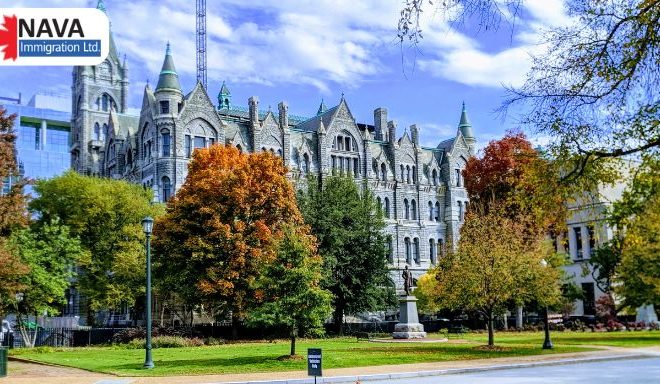British Columbia began offering PAL to International students
Starting March 4, British Columbia began offering PAL to International students. PLA stands for provincial attestation letter (PAL).
As per the recent modifications, International students have to submit a provincial attestation letter (PAL) along with their study permit application. This is to prove that they have been approved by a Designated Learning Institution (DLI) in Canada within its allocation limits.
As per BC’s government, institutions receive PLAs from the provincial government, which they subsequently forward to international students.
The government further added that IRCC has approved a total of 83,000 allocations for undergraduate study permit applications.
BC also mentions that the federal government anticipates that, as per the prior acceptance rate, there will be about 50,000 study permit applications approved for 2024.
Compared to the last year, for undergraduate programs, there were around 97,000 study permit applications in British Columbia. This resulted in approximately 60,000 approved study permits.
According to the province, 47% of PALs will go to private universities and 53% to public post-secondary institutions.
This implies that there will be 27% fewer study permit applications for private institutions than there were last year (2023). According to B.C., the cutback is intended to thwart unsustainable growth.
The PAL system in British Columbia is the first to be implemented after the immigration department announced the cap on 2024 study permit applications.
It’s anticipated that other provinces will follow suit soon in order to meet the March 31 deadline.
British Columbia began offering PAL to International students: The Cap on Study Permit Applications for 2024
Canada’s immigration department on January 2024 announced a cap on study permit applications for 2024. Per this, the department will grant a maximum of 360,000 new study permits in 2024. This is notably a 35% decline compared to 2023 applications.
Under this change, renewal study permit applications, as well as master’s or doctoral degrees, will not be affected by the cap.
When IRCC announced the cap, it stated that the study permit allocations would be based on the provincial population. As per a report, British Columbia is the third most populated province in Canada, with around 5.6 million people.
In addition to this, IRCC also released the modifications to the eligibility requirement for Spousal Open Work Permits (SOWP) and Post Graduation Work Permits (PGWPs).
Per the changes, international students’ spouses or partners who are enrolled in an undergraduate degree will no longer qualify for a SOWP. But, this has yet to be implemented.
Minister Miller’s Views on Unsustainable Growth
Canada’s immigration minister has repeatedly made remarks about the unsustainable nature of Canada’s international student program.
This has led to the implementation of the cap on study permits.
This minister said that in 2023, there were more than 1 M active study permits when the nation was struggling with the affordable housing shortages. As a consequence, many international students are living in impoverished conditions, or in some cases, they are experiencing homelessness.
In addition, the minister also noted that overseas students were not receiving appropriate support due to “permissive” DLI models in some areas. This is despite paying much higher tuition costs than domestic students.
IRCC believes that that cap will target bad actors within the system by reducing their source of income.
What are the major modifications to British Columbia’s international student program?
The BC government anticipates that the cap will have a notable impact on private institutions. As they typically have less monitoring than public institutions.
Moreover, it has also announced several measures to counteract the unsustainable growth of international student programs in the province.
The following are the measures.
BC has halted approvals for new post-secondary schools aiming to enroll international students until February 2026.
It will also ensure that degree programs at private colleges attain higher standards for approvals. This includes higher assessment criteria for degree quality, appropriate resources, student support, and demonstrated labor-market need for graduates.
Furthermore, BC has also established new minimum language requirements for students at private institutions. This is to ensure that students are sufficiently prepared for student life in BC.





